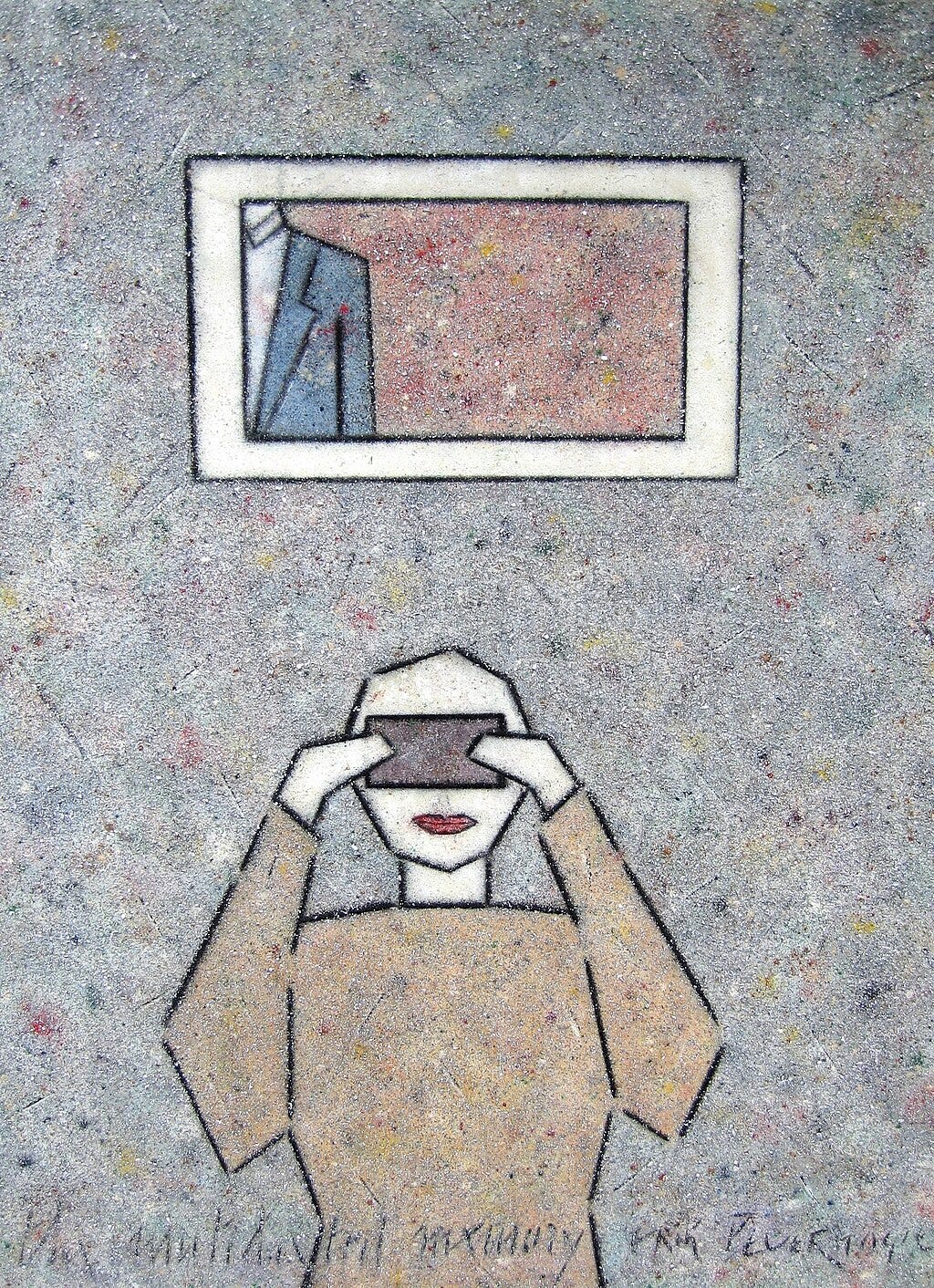“Naturalistic” approaches dominate contemporary metaphysics of memory. These approaches presuppose that human memory is a mental kind and that mental kinds are, or are more or less straightforwardly reducible to, natural kinds. They hold that human memory will ultimately be shown to be completely contained within the purview of the cognitive psychological and/or neuro-biological sciences.
But what if mental kinds are more like race, gender, and love than they are like chemical elements or biological species?

Just as mental kinds have cognitive-neurological dimensions, race, gender, and love all have biological dimensions (and love, too, has cognitive neurological dimensions). But few metaphysical theories of race, gender, or love treat them as straightforward natural kinds. Instead, quite a few such theories treat them as “social kinds”: kinds that are socially constructed, as opposed to kinds that are simply discovered in nature. As social kinds, their biological dimensions are understood to be bound up with their social, historical, political, cultural, and economic dimensions in complex and dynamic ways.
That said, the relationship between social kinds and natural kinds is debated. Perhaps some social kinds are natural kinds; perhaps they all are. But then again, perhaps all natural kinds are to some extent socially constructed. The late philosopher of science Ian Hacking would say it doesn’t matter, for “human kinds”—including race, gender, homosexuality, autism, child abuse, and teenage pregnancy—are distinguished by their “looping effects.”
Looping effects arise for human kinds because they function to classify people— their character, behavior, acts, emotions, and experiences—and, Hacking explains, “classifying people works on people, changes them, and even changes their past…The people of a kind are changed. Hence ‘we’, the experts, are forced to rethink our classifications.”
The looping effects of human kinds operate through the self-conceptions of those classified as well as through the ways others respond to them. But as Hacking notes, research into human kinds tends to obscure these effects in part by obscuring their normative features through “biologizing” and “medicalizing” them.
The philosopher Michelle Moody-Adams warns of the dangers of empirically motivated philosophical theories which treat human culture as a kind of medical condition that renders humans incapable of recognizing the moral wrongness of practices like slavery, on the grounds that psychological theories “have a powerful tendency to shape the reality they claim only to interpret— especially when they achieve dominance in a culture.”
The looping effects of theories of human kinds have both ethical and epistemic implications.
Consider, for example, the impact Elizabeth Loftus’ research into “false memory” has made on how we and the legal systems we’ve developed are prone to respond to those who claim to have memories of traumatic events. According to Loftus, if you can (i) convince someone that it is plausible that they were, say, lost at a mall when they were a child, (ii) convince them that they were in fact lost at a mall as a child, and (iii) guide them to imagine that they were lost in a mall as a child, there’s a good chance that you’ll “implant” a rich but false episodic memory of being lost at a mall as a child, even though the event never occurred.
In the ‘90s, an advocacy organization for people claiming to be falsely accused of sexual abuse called “the False Memory Syndrome Foundation (FMSF)” popularized the idea that it’s relatively easy to implant false memories for traumatic events by claiming to have discovered a new syndrome in which false memories of childhood sexual abuse are created iatrogenically, that is, more or less Loftus-style, through the influence of parents or therapists. They called it “False Memory Syndrome” or “FMS.” Legal theorists who subsequently investigated ways in which the purported existence of FMS influenced the legal construction of credibility, i.e., determining features of a reliable witness in the courtroom, suggest that FMS works to reinforce and exacerbate pre-existing tendencies to dismiss the testimony of women and children.
Partly thanks to Loftus, the view that trauma and PTSD negatively impact human memory has become culturally dominant. As a consequence, the questions that guide inquiry into the effects of trauma on memory ask: what is it that’s not functioning properly, and what are the mechanisms by which trauma causes the capacity for episodic memory to break down?
As a result, there’s a disproportionately large literature on the topic of the negative influences of trauma on memory. The sheer quantity of research on this topic creates the illusion that there’s good reason to think that trauma negatively impacts memory. This, in turn, impacts how victims of trauma are understood by others and themselves to suffer, or to be likely to suffer, memory impairments. And this, in turn, impacts how likely they are to trust their own episodic memories as well as how likely others are to trust their testimony.
Rebecca Dreier, Seth Goldwasser, and I have argued that victims of trauma and PTSD remember the relevant events at least as well as non-victims remember non-traumatic events. If we’re right, then categorizing trauma victims as unreliable rememberers constitutes an ableist form of testimonial injustice (and arguably a form of gaslighting).
The ethical and epistemic implications of looping effects motivate social critical approaches to the metaphysics of human kinds. Social critical approaches are empirical in that they aim to describe or explain the nature of the kind in question. But crucially, they are also normative: they ultimately aim to explain practices in which we are currently engaged as participants, and they understand these practices as revisable, and where, as the philosopher Sally Haslanger notes, “in making sense of them, we are making judgements about how to better understand what we are doing, and how then to go on.”
Social critical metaphysicians have developed “social constructionist” theories of human kinds like race, gender, and love. Such theories metaphysically illuminate human kinds by the functional roles they play and hold that the relevant functional roles are at least partly social.
Like naturalist approaches, social constructionist approaches are empirically informed. However, in committing to the view that mental kinds like memory are or are reducible to natural kinds, those who adopt the naturalistic approach inevitably give pride of place to a particular domain of science (typically cognitive psychology or neuroscience). In contrast, social constructionist theories of memory would embrace a more interdisciplinary approach to memory, as advocated by some philosophers.
The social critical approach will also be cognizant of ways in which looping effects problematize uncritical engagement with scientific theories and studies. For instance, the philosopher Carrie Jenkins has shown that scientific research into romantic love depends heavily on self-reports, the epistemic standing of which is undermined by selection effects and error tendencies in self-reports as a reflection of certain biases, such as self-serving bias, wishful thinking, and confirmation bias. A social constructionist approach to memory will likewise take a critical approach towards interpreting memory science.
But what might a social constructionist account of memory might look like? Naturalists’ functionalist accounts of mental kinds focus exclusively on the causal roles memory plays in the human cognitive system or brain, perhaps as determined by selection history (e.g., evolution). If something plays a functional role, it has a tendency or disposition to do something. Something that plays a complex functional role will typically encompass a variety of tendencies or dispositions. Human capacities or competences play complex functional roles. So, one way of developing a social critical approach to human memory involves treating it as a type of capacity or competence.
Seth Goldwasser and I propose that the notion of an epistemic capacity or competence provides an historical and explanatory bridge between the social functional roles of human memory and the functional roles described by cognitive psychology. We argue that competences involve “modes of manifesting,” and that trauma impacts the condition or the circumstances in which victims’ competence to speak truthfully about their traumas manifests by determining a different mode of manifesting for traumatic memories.
Unfortunately, the science of memory and other mental kinds does not appreciate this. When epistemic competences manifest in unexpected ways— as they do in traumatic memory and in neurodivergent “disorders” like ADHD— scientists have too hastily inferred the deficiency or absence of an epistemic capacity or competence. Scientific theories, moreover, naturalize or essentialize such “deficiencies” by explaining them in terms of breakdowns in causal mechanisms which may include certain genetic factors.
The sciences thereby perpetuate and obscure a form of epistemic intolerance: a failure to recognize diverse forms of epistemic competences as competences at all.
Naturalists who favor a more deferential attitude towards science may fault these claims for exhibiting epistemic arrogance. But I’d call it chutzpah: the courage to challenge the methods and assumptions of (even now) better funded, more widely respected disciplines, and to creatively theorize how to go on.



